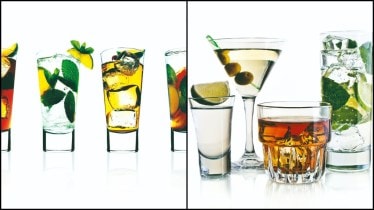If you go back 40 years, the two industries — alcohol and perfumes — were running parallel, says Bhagath Reddy, CEO and co-founder, Comte de Grasse, a liquor-tech company based in France. “However, what happened over the past 30 years was that while the perfume industry took a more modern approach and invested in science and technology; in spirits, the premiumisation storyline was built on tradition and age became a marker of luxury. The older the whiskey, the better. The older the Cognac, the better!” he adds.
However, the realisation that “making a product the same way doesn’t make it better” and a quest to make something unique and premium led Reddy to a 19th-century perfumery in Grasse, where he established his distillery, which manufactures the brand’s flagship 44°N Gin along with 06 Vodka Rosé.
Here, a connection between the perfume and alcohol industries played a role. Both of them use copper stills. “Since in perfumes, they were dealing with flowers and delicate botanicals; they had to invest in science and tech. Hence, they developed technologies like ultrasonic maceration, CO2 extraction, and molecular distillation. This is where I found the connection, and thought why not use the science that exists in the fragrance industry, and apply it to flavour to disrupt the luxury spirits market. And that is how Comte de Grasse, the liquor-tech company, came about,” Reddy, who was in the country last month, shares.
Hence, the making of the brand’s flagship 44°N Gin involves processes, such as using sound energy to extract the flavours from botanicals, and passing it through a process of cold distillation, in which the liquid evaporates at a lower temperature. “That is why we are able to use flowers and delicate botanicals, which otherwise would get destroyed due to heat in traditional stills,” says Reddy, according to whom, the whole process uses less energy and makes the production faster. And the product that one gets at the end is a pure symphony of flavours, and an aroma that can easily pass off for aromatherapy — a delicate balance between floral, citrus and musky tones. The distinct palette and the intriguing aroma surely engages more than one sense, making for an enhanced experience.
The maker says, it is the use of sound and most importantly the cold distillation process that “sets us apart”. “It allows us to use elements like rose, verbena, alexanders, and samphire, which would otherwise be destroyed by heat in a traditional still. You’ll not get to taste them. But in our gin, you’ll get to taste them because of the process. So that’s where the tech plays a role. Also, we use less energy,” he elaborates.
Apart from its flagship gin, the company also has 06 — a 100% French vodka rosé in its product portfolio. Drawing inspiration from Provence, it is made by infusing rosé wine into French winter wheat vodka. The product, again, is one of a kind with a subtle flavour and floral aroma.
While for the liquor industry, the traditional has largely remained the contemporary, an increasing number of companies are looking at tech, even as new-age as artificial intelligence, to address challenges and innovate.
According to reports earlier this year, Japanese brewer Sapporo Holdings was working with IBM to use AI to minimise the time to develop new products. For example, for a drink, the creators could input a general description, the flavour profile, and choose a Sapporo product as a reference, into the AI and the system would generate possible formulations. At the same time, Sapporo’s rival Kirin Holdings, too, was reportedly testing AI to make new beers.
Hence, there seems to be much room for technical innovation in the liquor space, whether it is for innovation, optimising product development, or reducing the environmental burden.
